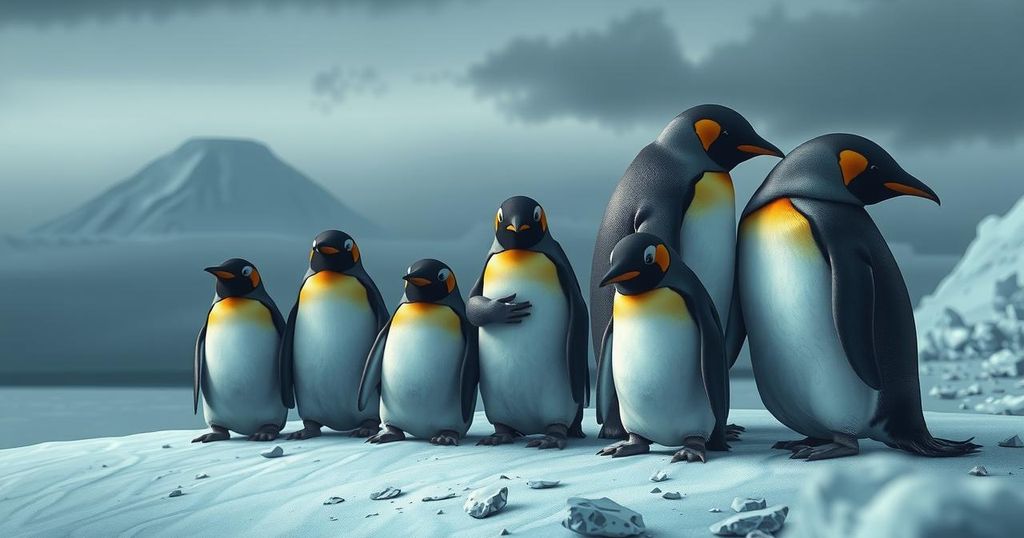Afternoon Update Election 2025: Fallout from Trump’s Tariffs and Political Developments

This edition of Afternoon Update highlights the implications of Donald Trump’s announced tariffs on Australia, Prime Minister Albanese’s response, and Opposition Leader Peter Dutton’s commentary. Key points include criticisms surrounding negotiation strategies, a resurfacing of past controversies, and insights from Paul Keating on global trade. The update also covers Albanese’s minor stumble at a conference and a report on Australia’s unprecedented warmth over the last year.
In today’s Afternoon Update, the election campaign’s seventh day has been overshadowed by Donald Trump’s declaration of a “liberation day” alongside the announcement of 10% tariffs on Australia. Prime Minister Anthony Albanese remarked that this action was “not the act of a friend,” although he acknowledged Australia had secured better deals than any other nation. This excludes Norfolk Island, which faces a notably high tariff of 29%, as described by the PM as “rather bizarrely.”
Opposition Leader Peter Dutton expressed strong support for the government’s reaction to the tariffs, which included a $1 billion economic resilience program. He commented that the Coalition “could have achieved a different outcome” despite nearly all nations, including the UK, New Zealand, Japan, South Korea, and India, receiving no exemptions. Dutton’s claims created questions about what unique strategies he may possess.
Foreign Minister Penny Wong was critical of Dutton’s assertion that the government should act more vigorously to counter Trump’s tariffs. Wong, during an appearance on Sky News, stated that Dutton seemed to believe he was “Superman” but was merely “captain obvious.” She countered his call for negotiations by asserting that these discussions have already been ongoing.
The “fake tradie” controversy resurfaced, recalling Andrew MacRae’s 2016 Liberal Party advertisement. Recent social media ads featured former MP Tim Wilson with an individual resembling a prominent figure in the Goldstein campaign, reigniting discussions around authenticity in political endorsements.
Former Prime Minister Paul Keating issued a poignant critique of the tariffs, stating, “Australia’s clutch of Austral-Americans… must have choked on their breakfasts.” He furthers his disdain for AUKUS while positioning China as the “sole promoter of free and open international trade” amidst America’s “new economic fortress.”
The repercussions of Trump’s tariffs have reached even the distant Heard and McDonald Islands, home to an array of wildlife but no human inhabitants. Outraged by the tariffs, commentators wink at the potential adverse effects on the islands’ fishing industries, highlighting the far-reaching impacts of U.S. trade policy.
Meanwhile, Prime Minister Albanese experienced a minor incident at a Mining and Energy Union conference when he tripped but quickly regained composure, sharing a moment of levity with union members after the fall.
In additional news, Australia has documented its hottest 12 months on record, while the Reserve Bank of Australia has recommended caution regarding lending as financial conditions have improved from 2022. South Korea finds itself in turmoil pending a ruling on President Yoon’s impeachment, and NSW prosecutors are appealing a non-custodial sentence for Kristian White in the manslaughter of 95-year-old Clare Nowland.
In summary, the impact of Donald Trump’s tariffs on Australia has been a significant focal point of the ongoing election campaign, eliciting varied responses from both government and opposition leaders. The unfolding events underscore not only the political ramifications but also the potential economic consequences on communities, including distant territories impacted by trade policies. In light of ongoing discussions and unexpected incidents, the trajectory of the election narrative remains compelling.
Original Source: www.theguardian.com







